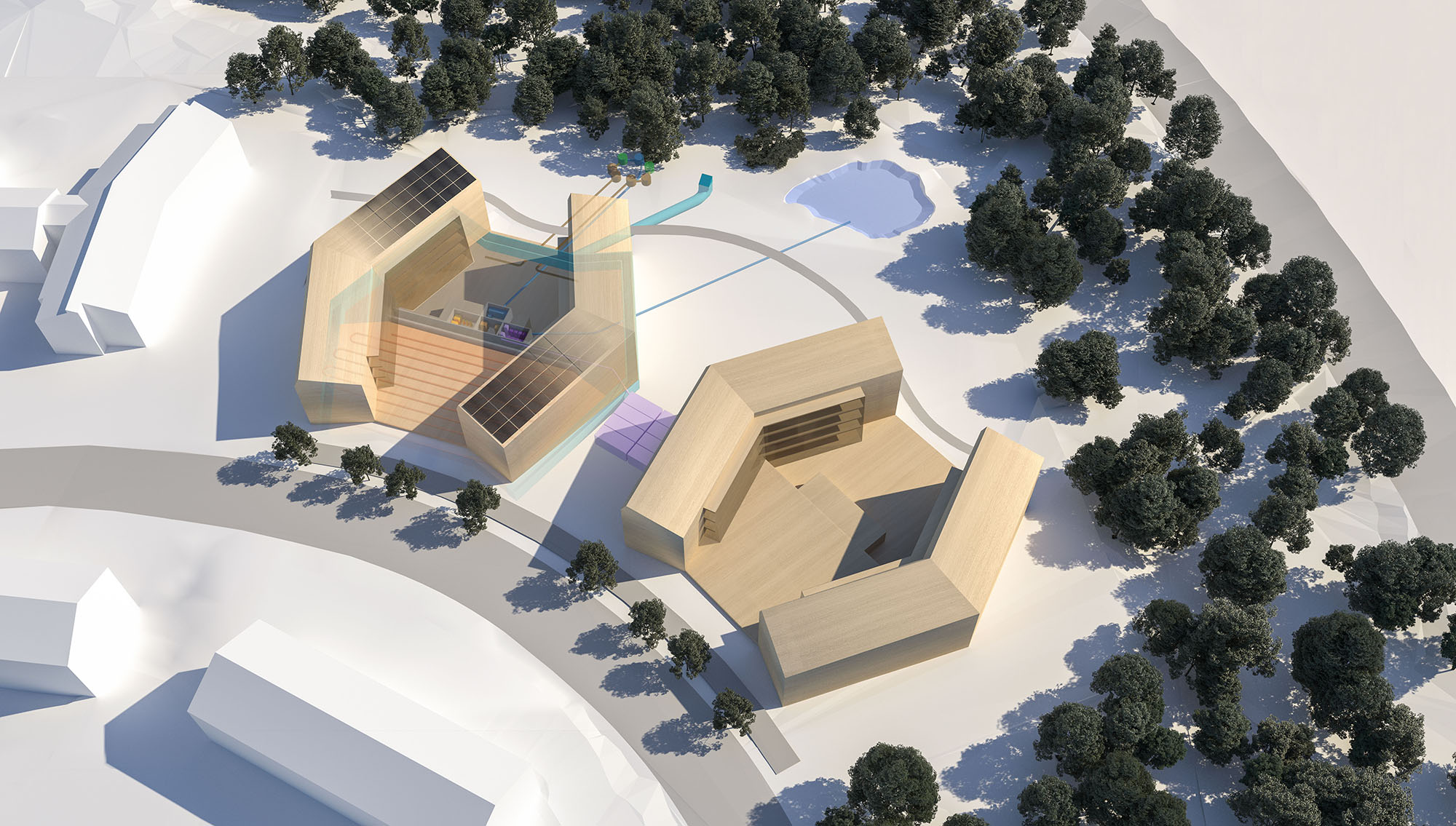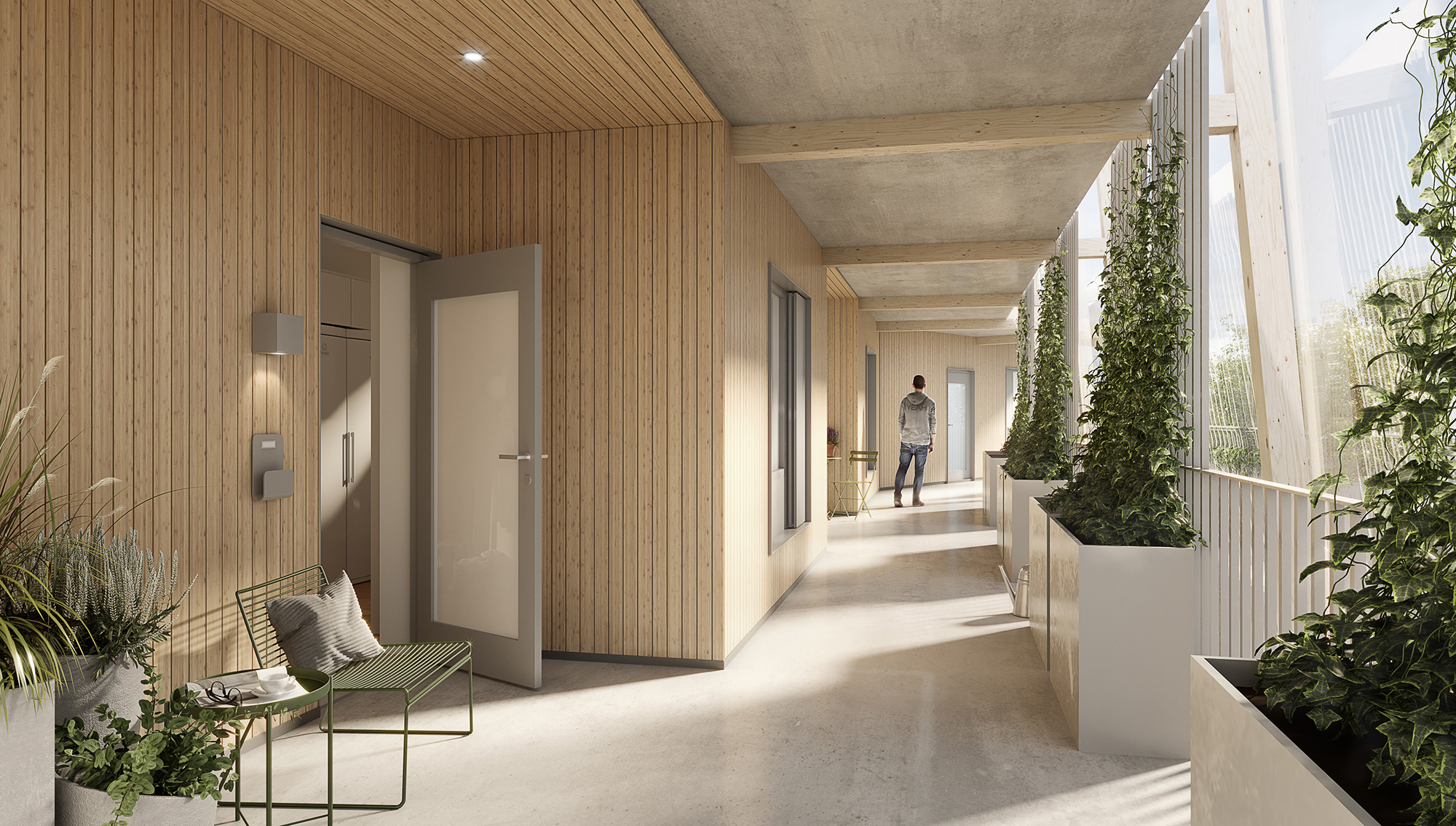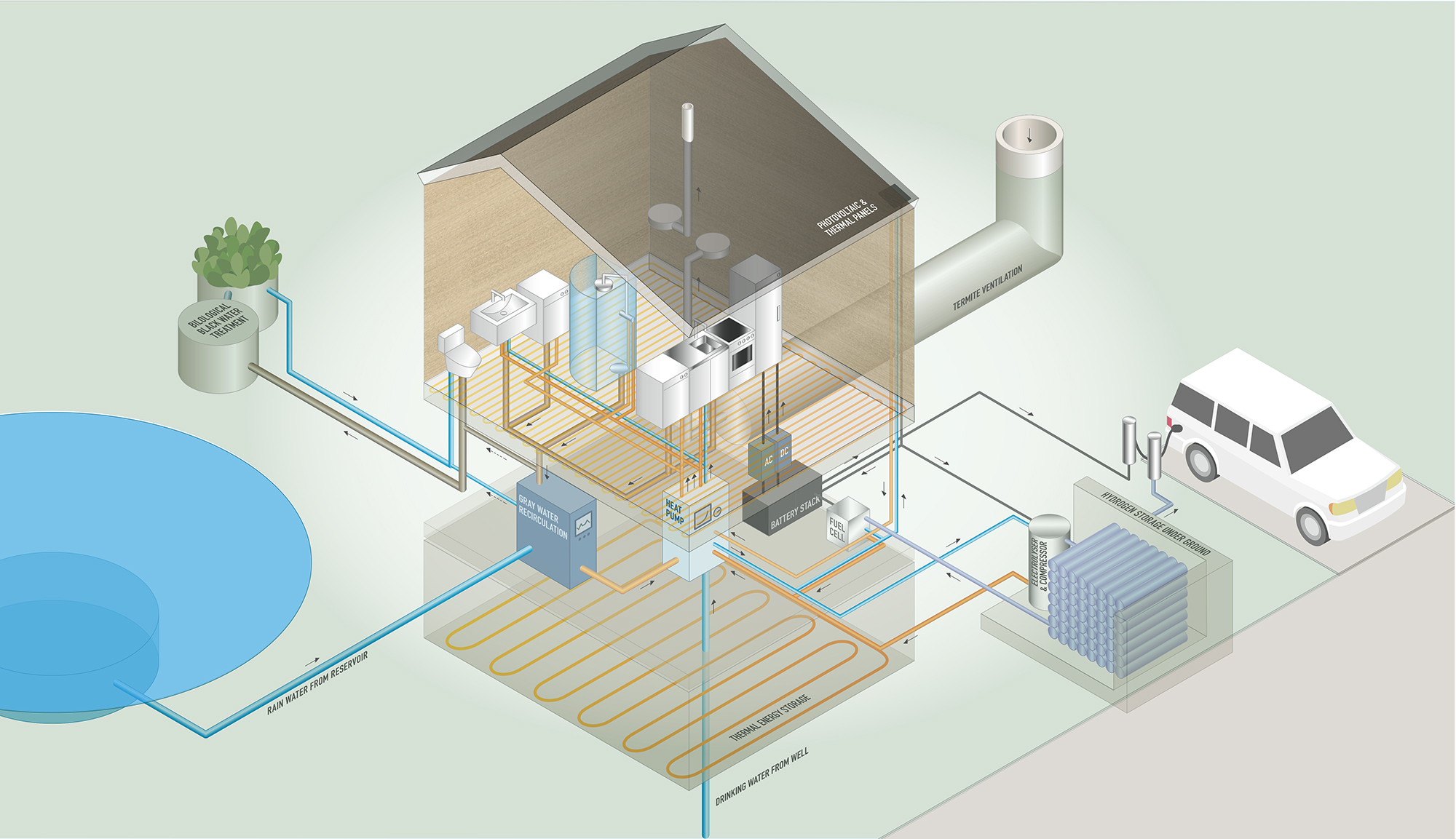Solar energy a base for power supply
The estimated annual electricity consumption is approximately 120,000 kWh. To cover the need, facades, roofs, and glazing are equipped with various types of solar cells. Electricity is stored in batteries before use. To meet winter demand, energy will be stored in hydrogen, converted to electricity and heat via a fuel cell. Vehicles may be charged with excess energy. To minimize the size of battery and hydrogen storage, energy consumption is optimized in different ways:
– Climate shell enabling less than 20 kWh/m2 and year in energy consumption for heating and hot water.
– Liquid-cooled solar cells on the roof increase efficiency, providing both electricity and heat.
– Purification and recirculation of hot water and graywater reduce energy needs by up to 80%.
– Heat recovery from the electrolysis process producing hydrogen (55°C, heats hot water in summer).
– Recovery of heat in the coolant from the fuel cell (65°C, heats hot water in winter).
– A highly efficient heat pump serves as the core of heating and hot water management.
– Seasonal storage of heat surplus in a ground heat storage called ASES.
– A hybrid of termite ventilation preheats air in winter and cools it in summer, requiring minimal fan operation.
– Toilets flushing with water warmed in a natural microbiological purification process, avoiding unnecessary heating in the flush tank.
– Demand and seasonal control of heating.
– Residents can measure and to some extent control their consumption, triggering cost-saving reflexes (lower living costs).
– For operational reliability, solar cells, charging, and power supply are sectioned to avoid power outage if any part fails or undergoes maintenance.



